The Last Emperor (Italian: L'ultimo imperatore) is a 1987 British-Italian epic biographical drama film about the life of Puyi, the last Emperor of China, whose autobiography was the basis for the screenplay written by Mark Peploe and Bernardo Bertolucci. Independently produced by Jeremy Thomas, it was directed by Bertolucci and released in 1987 by Columbia Pictures. Puyi's life is depicted from his ascent to the throne as a small boy to his imprisonment and political rehabilitation by the Communist Party of China.
| The Last Emperor | |
|---|---|
Promotional poster | |
| Directed by | Bernardo Bertolucci |
| Produced by | Jeremy Thomas |
| Written by |
|
| Starring |
|
| Music by |
|
| Cinematography | Vittorio Storaro |
| Edited by | Gabriella Cristiani |
Production company |
|
| Distributed by | Columbia Pictures |
Release date |
|
Running time | 163 minutes |
| Country |
|
| Language |
|
| Budget | $23.8 million |
| Box office | $44 million |
The film stars John Lone as Puyi, with Joan Chen, Peter O'Toole, Ruocheng Ying, Victor Wong, Dennis Dun, Ryuichi Sakamoto, Maggie Han, Ric Young, Vivian Wu, and Chen Kaige. It was the first Western feature film authorized by the People's Republic of China to film in the Forbidden City in Beijing. It won 9 Academy Awards, including Best Picture and Best Director.
Screenplay
In 1950, Puyi has been kept in custody for five years, since the Red Army captured him during the Soviet Union entry into the Pacific War in 1945. In the recently established People's Republic of China, Puyi arrives as a political prisoner and war criminal at the Fushun Prison. Soon after his arrival, Puyi attempts suicide, but is quickly revived and told he must stand trial.
42 years earlier, in 1908, a toddler Puyi is summoned to the Forbidden City by the dying Empress Dowager Cixi. After telling him that the previous emperor had died earlier that day, with her last words, Cixi tells Puyi that he will be the next emperor. After his coronation, Puyi, frightened by his new surroundings, repeatedly expresses his wish to go home, which is denied. Despite having scores of palace eunuchs and maids to wait on him, his only real friend is his wet nurse, Ar Mo, who accompanied him and his father to the palace on the Empress Dowager's summons.
The next section of the film continues the series of chronological flashbacks showing Puyi's early life intermixed with his imprisonment in the 1950s. His upbringing is confined entirely to the imperial palace, which he is not allowed to leave. When he is about ten, he is visited by his younger brother, Pujie, who tells him he is no longer Emperor and that China is a republic; that same day, Ar Mo is made to leave him. In 1919, the kindly Scotsman Reginald Johnston is appointed as Puyi's tutor and gives him a Western-style education. Puyi becomes increasingly desirous to leave the Forbidden City. Johnston, wary of the courtiers' expensive lifestyle, convinces Puyi that the best way of achieving this is by marrying; Puyi subsequently weds Wanrong, with Wenxiu as a secondary consort.
Now the master of his own home, Puyi sets about reforming the Forbidden City, including expelling the thieving palace eunuchs. However, in 1924, he himself is expelled from the palace and exiled to Tientsin following the Beijing Coup. He leads a decadent life as a playboy and Anglophile, and when the Japanese invade Manchuria he sides with them. During this time Wenxiu divorces him, but Wanrong remains and eventually succumbs to opium addiction. In 1934 the Japanese crown him "Emperor" of their puppet state of Manchukuo, though his supposed political supremacy is undermined at every turn. He remains nominal ruler of the region until his capture by the Red Army at the end of the Second World War.
Under the "Communist re-education programme" for political prisoners, Puyi is coerced by his interrogators to formally renounce his forced collaboration with the Japanese invaders for war crimes during the Second Sino-Japanese War. Finally, after a heated discussion with the camp commandant and upon watching a film detailing the wartime atrocities committed by the Japanese, Puyi recants his previous stance and is considered rehabilitated by the government; he is subsequently set free in 1959.
The final minutes of the film show a flash-forward to 1967 during the rise of Mao Zedong's cult of personality and the beginning of the Cultural Revolution. By now, Puyi has become a simple gardener who lives a peasant proletarian existence. On his way home from work, he happens upon a Red Guard parade, complete with children playing pentatonic music on accordions en masse and dancers who dance the rejection of landlordism by the Communists. His prison camp commander, who helped him greatly during his rehabilitation, is forced to wear a dunce cap and a sandwich board bearing punitive slogans, and is one of the political prisoners now punished as an anti-revolutionary in the parade.
Puyi later visits the Forbidden City as an ordinary tourist. He meets an assertive little boy wearing the red scarf of the Pioneer Movement. The young Communist orders Puyi to step away from the throne. However, Puyi proves to the boy that he was indeed the Son of Heaven, proceeding to approach the throne. Behind it, Puyi finds a 60-year-old pet cricket that he was given by palace official Chen Baochen on his coronation day and gives it to the child. Amazed by the gift, the boy turns to talk to Puyi, but the emperor has disappeared.
In 1987, a tour guide is leading a group through the palace. Stopping in front of the throne, the guide sums up Puyi's life in a few, brief sentences, concluding that he died in 1967.
- John Lone as Puyi (adult)
- Richard Vuu as Puyi (3 years old)
- Tijger Tsou as Puyi (8 years old)
- Wu Tao as Puyi (15 years old)
- Joan Chen as Wanrong
- Peter O'Toole as Reginald Johnston
- Ying Ruocheng as Detention Camp Governor
- Victor Wong as Chen Baochen
- Dennis Dun as Big Li
- Ryuichi Sakamoto as Amakasu Masahiko
- Maggie Han as Eastern Jewel (Kawashima Yoshiko)
- Ric Young as Interrogator
- Wu Junmei as Wenxiu
- Cary-Hiroyuki Tagawa as Chang
- Jade Go as Ar Mo
- Fumihiko Ikeda as Colonel Yoshioka
- Fan Guang as Pujie (adult), Puyi's younger brother
- Henry Kyi as Pujie (7 years old)
- Alvin Riley III as Pujie (14 years old)
- Lisa Lu as Empress Dowager Cixi
- Hideo Takamatsu as General Takashi Hishikari
- Hajime Tachibana as the Japanese translator
- Basil Pao as Prince Chun, Puyi's father
- Henry O as the Lord Chamberlain
Development
Bernardo Bertolucci proposed the film to the Chinese government as one of two possible projects - the other was an adaptation of La Condition Humaine (Man's Fate) by André Malraux. The Chinese preferred The Last Emperor. Producer Jeremy Thomas managed to raise the $25 million budget for his ambitious independent production single-handedly. At one stage, he scoured the phone book for potential financiers. Bertolucci was given complete freedom by the authorities to shoot in The Forbidden City, which had never before been opened up for use in a Western film. For the first ninety minutes of the film, Bertolucci and Storaro made full use of its visual splendour.
Filming
19,000 extras were needed over the course of the film. The Chinese army was drafted in to accommodate.
In a 2010 interview with Bilge Ebiri for Vulture.com, Bertolucci recounted the shooting of the Cultural Revolution scene:
- Before shooting the parade scene, I put together four or five young directors whom I had met, Chen Kaige — who also plays a part in the film, he’s the captain of the guard — and Zhang Yimou. I asked them about the Cultural Revolution. And suddenly it was like I was watching a psychodrama: They started to act out and cry, it was extraordinary. I think there is a relationship between these scenes in The Last Emperor and in 1900. But many things changed between those two films, for me and for the world.
While not included on the album soundtrack, the following music was played in the film: "Am I Blue?" (1929), "Auld Lang Syne" (uncredited), and "China Boy" (1922) (uncredited).
Hemdale Film Corporation acquired all North American distribution rights to the film on behalf of producer Thomas, who raised a large sum of the budget himself. Hemdale, in turn, licensed theatrical rights to Columbia Pictures, who were initially reluctant to release it, and only after shooting was completed did the head of Columbia agree to distribute The Last Emperor in North America. Hemdale licensed its video rights to Nelson Entertainment, which released the film on VHS and Laserdisc. The film also received a Laserdisc release in Australia in 1992, through Columbia Tri-Star Video. Years later, Artisan Entertainment acquired the rights to the film and released both the theatrical and extended versions on home video. In February 2008 The Criterion Collection (under license from now-rights-holder Thomas) released a four disc Director-Approved edition, again containing both theatrical and extended versions. Criterion released a Blu-ray version on 6 January 2009.
The Last Emperor had an unusual run in theatres. It did not enter the weekend box office top 10 until its twelfth week in which the film reached #7 after increasing its gross by 168% from the previous week and more than tripling its theatre count (this was the weekend before it was nominated for the Academy Award for Best Picture). Following that week, the film lingered around the top 10 for 8 weeks before peaking at #4 in its 22nd week (the weekend after winning the Oscar) (increasing its weekend gross by 306% and nearly doubling its theatre count from 460 to 877) and spending 6 more weeks in the weekend box office top 10. Were it not for this late push, The Last Emperor would have joined The English Patient, Amadeus, and The Hurt Locker as the only Best Picture winners to not enter the weekend box office top 5 since these numbers were first recorded in 1982.
The film was converted into 3D and shown in the Cannes Classics section at the 2013 Cannes Film Festival.
Critical response
The film received critical acclaim. On Rotten Tomatoes, it has a 92% "Certified Fresh" score based on 59 reviews, with an average rating of 8.1/10. The site's consensus states: "While decidedly imperfect, Bernardo Bertolucci's epic is still a feast for the eyes." Metacritic reports a 76 out of 100 rating based on 15 critics, indicating "generally favorable reviews".
Roger Ebert was notably enthusiastic in his praise of the film, awarding it 4 stars out of 4; he wrote that "Bertolucci is able to make Pu Yi's imprisonment seem all the more ironic because this entire film was shot on location inside the People's Republic of China, and he was even given permission to film inside the Forbidden City - a vast, medieval complex covering some 250 acres and containing 9,999 rooms (only heaven, the Chinese believed, had 10,000 rooms). It probably is unforgivably bourgeois to admire a film because of its locations, but in the case of "The Last Emperor" the narrative cannot be separated from the awesome presence of the Forbidden City, and from Bertolucci's astonishing use of locations, authentic costumes and thousands of extras to create the everyday reality of this strange little boy." Jonathan Rosenbaum, comparing The Last Emperor favourably to Steven Spielberg's Empire of the Sun, claimed that "t best, apart from a few snapshots, Empire of the Sun teaches us something about the inside of one director's brain. The Last Emperor incidentally and secondarily does that too; but it also teaches us something about the lives of a billion people with whom we share this planet—and better yet, makes us want to learn still more about them."
Request Movie Now
Watch movie The Last Emperor online on Amazon
Watch movie The Last Emperor online
Watch The Movie On Prime
Johnny Gaddaar Full HD Movie Download
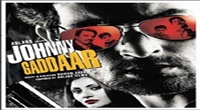
Tahaan Full HD Movie Download

Kiran Bedi Full HD Movie Download
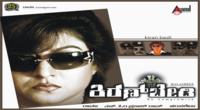
Dev D Full HD Movie Download
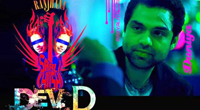
Ghamandee Full HD Movie Download

Chhota Sa Ghar Full HD Movie Download
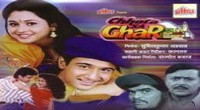
Nastik (1954) Full HD Movie Download
.jpg)
Alibaba Aur 40 Chor Full HD Movie Download
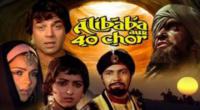
Shiva Dada Full HD Movie Download

Nehiya Lagawani Saiyan Se Full HD Movie Download
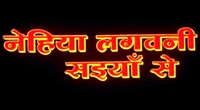
Kanteerava Full HD Movie Download
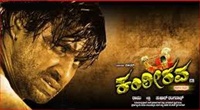
Babbi Abbai Full HD Movie Download
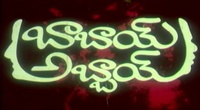
Daya Nayak- License To Kill Full HD Movie Download
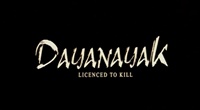
Aatma Gowaravam Full HD Movie Download
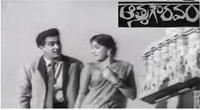
My Boss Bajranbali Full HD Movie Download
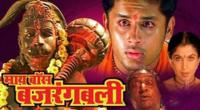
Iru Medaigal Full HD Movie Download
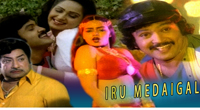
Josh Full HD Movie Download

Bharatamlo Arjunudu Full HD Movie Download
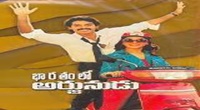
Dear Brother Full HD Movie Download
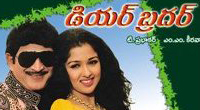
Koduku Full HD Movie Download
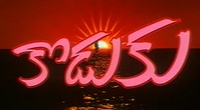
Malli Inkokkasari Full HD Movie Download
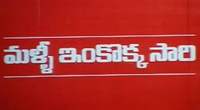

Download latest Movie from bollywood
Request for Download movie The Last Emperor
- Bollywood movies
- Latest Bollywood movies
- Download all bengali movies
- Download all bhojpuri movies
- Download all english movies
- Download all gujarati movies
- Download all hindi movies
- Download all kannada movies
- Download all malayalam movies
- Download all marathi movies
- Download all oriya movies
- Download all punjabi movies
- Download all tamil movies
- Download all telugu movies
- Bollywood action movies
- Bollywood adventure movies
- Bollywood animation movies
- Bollywood classical movies
- Bollywood comedy movies
- Bollywood crime movies
- Bollywood devotional movies
- Bollywood documentary movies
- Bollywood drama movies
- Bollywood family movies
- Bollywood fantasy movies
- Bollywood historical movies
- Bollywood history movies
- Bollywood horror movies
- Bollywood musical movies
- Bollywood mystery movies
- Bollywood mythological movies
- Bollywood patriotic movies
- Bollywood romance movies
- Bollywood romantic movies
- Bollywood sci-fi movies
- Bollywood social movies
- Bollywood spiritual movies
- Bollywood sports movies
- Bollywood suspense movies
- Bollywood thriller movies
- Bollywood war movies
- Hot actress list
- Hot gujarati actress list
- Hot tamil actress list
- Hot bhojpuri actress list
- Hot assam actress list
- Hot bihari actress list
- Hot jammu and kashmir actress list
- Hot gujarati actress list
- Hot haryana actress list
- Hot konkani actress list
- Hot marathi actress list
- Hot odia actress list
- Hot punjabi actress list
- Hot rajasthani actress list
- Hot kannada actress list
- Hot malayalam actress list
- Hot telugu actress list
- Hot tulu actress list
- Hot Actress list from Indian city
- Hot actress list from ahmedabad
- Hot actress list from alappuzha
- Hot actress list from bangalore
- Hot actress list from bangalore
- Hot actress list from bhopal
- Hot actress list from chandigarh
- Hot actress list from chennai
- Hot actress list from guwahati
- Hot actress list from hyderabad, india
- Hot actress list from indore
- Hot actress list from jaipur
- Hot actress list from kannur
- Hot actress list from kochi
- Hot actress list from kolkata
- Hot actress list from kollam
- Hot actress list from kottayam
- Hot actress list from kozhikode
- Hot actress list from lucknow
- Hot actress list from madurai
- Hot actress list from mangalore
- Hot actress list from mumbai
- Hot actress list from mysore
- Hot actress list from new delhi
- Hot actress list from patna
- Hot actress list from pune
- Hot actress list from thiruvananthapuram
- Hot actress list from thrissur
- Hot actress list from tiruchirappalli
- Hot actress list from vijayawada
- Hot actress list from visakhapatnam
- All Bollywood Movies
- Bollywood Celeb
- >Art Director
- >Audiography
- >Background Music
- >Banner
- >Choreographer
- >Cinematographer
- >Costume Designer
- >Dialogue Writer
- >Director
- >Distributor
- >Editor
- >Executive Producer
- >Hair Stylist
- >Lyricist
- >Music Director
- >Photographer
- >Playback Singers
- >Presenter
- >Producer
- >Production Company
- >Production Designer
- >Screenplay
- >Singer
- >Sound
- >Actor
- >Story Writer
- >Studio
- >Video Director
- >Miscellaneous
- >Publicity (pro)
- >Web Creator
- >Production Labs
- >Publicity Design
- >Publicity Stills
- >Writer
- >Miscellaneous Artists
- >Visual Effects
- >Reporter
- >Music Company
- >Shooting Studios
- >Picturised On
- >Line Producer
- >Co Producer
- >Asst Director
- >Casting Director
- >Cinematography
- >Choreography
- >Dialouge
- >Editing
- >Lyrics
- >Music
- >Story
- >Playback Singer Female
- >Playback Singer Male
- >Actor In A Comic Role (male/female)
- >Child Artiste
- >Ensemble Cast
- >Actor Popular Choice (male)
- >Actor Popular Choice (female)
- >Sa Re Ga Ma Pa Song Of The Year
- >Actor In Supporting Role
- >Actress In Supporting Role
- >Actor In Leading Role
- >Art Direction
- >Actress In Leading Role
- >Sound Recording
- >Costume Design
- >Special Effects
- >Action
- >Actor In A Negative Role
- >Lifetime Achievement Award
- >Cinematic Exellence (director)
- >Cinematic Exellence (male)
- >Cinematic Exellence (female)
- >International Male Icon
- >International Female Icon
- >Actor In A Supporting Role (male)
- >Actor In A Supporting Role (female)
- >Actor In A Comic Role
- >Playback Singer (male)
- >Playback Singer (female)
- >Most Promising Debut (female)
- >Most Promising Debut (male)
- >Most Promising Director
- >Sound Design
- >Lifetime Jodi
- >Marketed Film
- >Jury Award For Best Actor
- >Jury Award For Best Actress
- >Jury Award For Best Film
- >Jury Award For Best Director
- >Playback Singer(male)
- >Lifetime Acheivement Award (male)
- >Excellence Award
- >Jodi Award
- >Performer Of The Year
- >Presented By
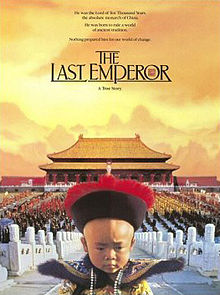 Story of movie The Last Emperor :
Story of movie The Last Emperor :